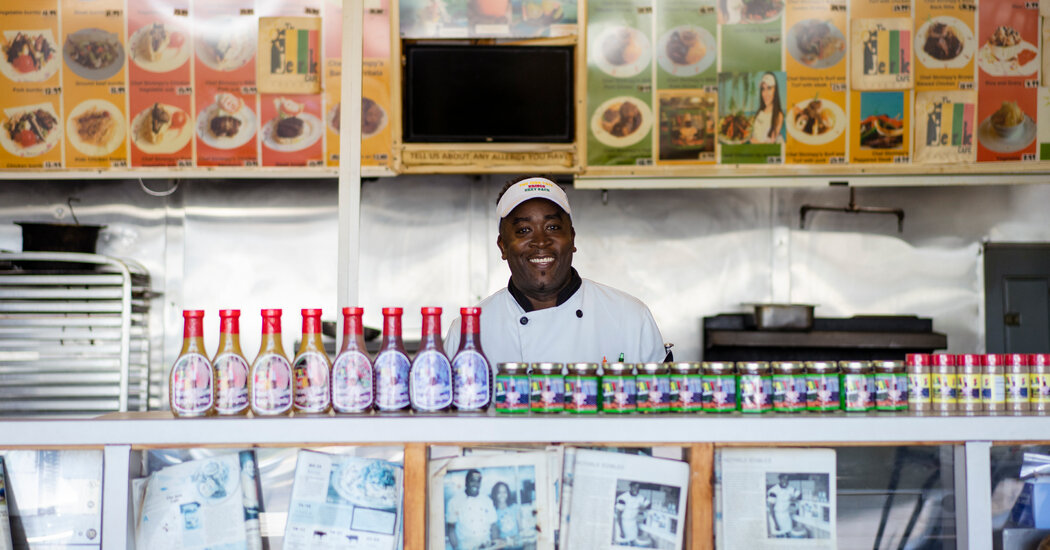At the Jerk Cafe, a storefront tucked into a strip mall in the Cape Cod village of South Yarmouth, Mass., sweet-smelling smoke greets guests as soon as they open the front door. So does the cafe’s proprietor, Glenroy Burke, who bounces around the wide-open kitchen stirring pots, tending the grill and plating dishes. “I don’t like to be hidden in the kitchen,” Mr. Burke said, who’s also known as “Chef Shrimpy.”
For more than three decades, Jamaican cooks and chefs have been coming to Cape Cod through the H-2B visa program, which provides foreign workers with a pathway toward temporary nonagricultural jobs. A modest number of seasonal workers have become permanent residents or citizens. This summer, as international travel resumes and the domestic labor market remains strong, Jamaicans are again staffing kitchens of traditional Cape seafood restaurants, fine dining destinations, resorts and inns.
And with their ingredients and cooking techniques, Jamaicans are making a mark on the region’s culinary identity, opening their own restaurants and enlivening the menus of established eateries from Hyannis to Provincetown. The taste of Cape Cod, long defined by Yankee seafood favorites, now includes flaky, golden patties, vibrant jerk rubbed-meats and turmeric-rich curries, humming with allspice.
“It’s like a cultural exchange through food,” said Byron Crooks, an H-2B visa holder from Westmoreland Parish, Jamaica, who is working as a chef at Cape Cod Caribbean Cafe this summer. “Other people get to understand us — how we talk, how we laugh, how we have conversations through food.”
A shared history of bananas
The number of Jamaicans working in the United States on the H-2B program increased by 84 percent in the past 10 years, to 8,950 in 2021 from 4,874 in 2011, according to the U.S. Citizenship and Immigration Services agency. Looking further back and locally, one Cape Cod-based immigration lawyer, Matthew Lee at Tocci & Lee, estimates — using data from the Cape Cod Chamber of Commerce — that by the summer of 2000, 500 Jamaicans were working on the Cape, and that number increased to a high of 1,000 before the pandemic.
Mr. Burke first came to the Cape in 1997 after connecting with an H-2B recruiter in Jamaica. He had grown up in Port Antonio, Jamaica, watching his mother cook, and he eventually worked in cruise ship kitchens and at resorts. After one year as a seasonal worker, Mr. Burke received a green card and worked as a cook and…
Click Here to Read the Full Original Article at NYT > Travel…
